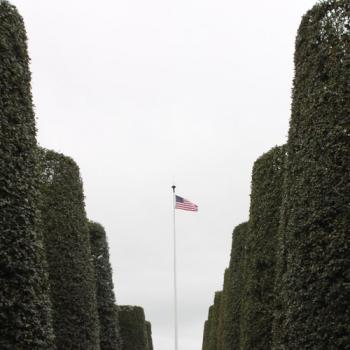 My wife Liz and I met in a bar.
My wife Liz and I met in a bar.
For Liz it was in defiance of her father’s admonition, “Whatever you do, don’t meet a Melungeon in a bar.” While technically she did meet a Melungeon in a bar, it wasn’t quite like that; we were both at a going-away party for a mutual friend, a poet who had taken a teaching job on the other side of the United States, in San Francisco.
Last Friday night Liz and I visited that bar for the last time. When the doors closed in the dark of Saturday morning, Bull Branch was gone. The owner Scott had closed it down the way she does everything—full throttle all the way. She swung open the doors and threw a smash-up party. Don DiLego, backed by a fantastic band, gave us a good dose of his soulful Americana. Everyone danced, and drank, and reveled in the company of old friends.
Open in 2001, Bull Branch was a restaurant and a bar, but it was more than that. It was a place to meet people interested in more than hookups and college football; it was a place to talk about art and literature and music; it was a place to hear music that ranged in the course of an hour from Willie Nelson to Morphine to Fela Kuti. If you wanted to dance, you did it between the tables. And that was fine. People did it all the time.
It feels like our town has lost another bubble of sanity, a local sanctuary from the bland corporate-store kitsch that appears to be spreading like gangrene across the city. Another place with personality goes, another Cracker Barrel or Buffalo Wild Wings—or two, or four—opens.
Friday was great fun. Saturday was sad, as if another friend had moved far away. Funny how a place has its own personality and can come to feel like a friend. Bull Branch was like that to me—a friend I hadn’t seen as much lately because I had three kids to usher through the teen years, but an old friend nonetheless.
Coincidentally, this weekend the Tibetan monks who came to Lynchburg last year are back, creating another mandala in the college chapel. Liz and I took the boys to the opening ceremony on Saturday afternoon. The harmonic throat singing was strange and entrancing; after that, they girded their loins and got to work. The mandala will be complete on Wednesday afternoon, and by Wednesday night, it will be gone. The point: nothing in this world lasts—or in the famous words from Frost’s poem, “Nothing gold can stay.”
When I first saw the movie The Outsiders I was in high school. At the time, I was writing bad poetry, mostly to impress girls. I had read Robert Frost for class and liked it, but what I loved was soccer. I never read The Outsiders and only know the author was quite young when she wrote it. It is an eighth-grade assignment in local schools.
Even when I was young and only into soccer and girls, I still felt the sadness when Ponyboy recites lines from the Robert Frost poem: “So dawn goes down to day / Nothing gold can stay.” This, like many lines from Frost poems, has become a cliché. Still, those words come back to me now as I’m thinking of loss. Nothing gold can stay. It is inevitable that things and people go away.
This realization is, in one way or another, part of any coming of age tale. As you grow older and watch more seasons end—and of course begin to contemplate your own—it can wear you down if you let it. The preacher’s words in Ecclesiastes, “to everything there is a season…a time to get, and a time to lose; a time to keep, and a time to cast away” is not an adage, but a weary lament.
However, because something will end is no reason to back away, enjoy it less. No, that’s a reason to celebrate it even more. In the words of Wallace Stevens, “Only the perishable can be beautiful, which is why we are unmoved by artificial flowers.”
I stepped into the chapel this afternoon, Monday, and the mandala is beginning to show its patterns. It will be beautiful in two days. Then it will be gone.
Goodbye Bull Branch, old friend.
Vic Sizemore earned his MFA in fiction from Seattle Pacific University in 2009. His fiction and nonfiction are published or forthcoming in Story Quarterly, Southern Humanities Review, PANK Magazine, Pembroke, Saint Katherine Review, Rock & Sling and elsewhere. An excerpt from his novel The Calling was a finalist for the Sherwood Anderson Award; other excerpts from The Calling are published in Portland Review and are forthcoming serially in Connecticut Review. His short story “Hush Little Baby” won the 28th New Millennium Writings Award for Fiction. Sizemore teaches at Central Virginia Community College.











